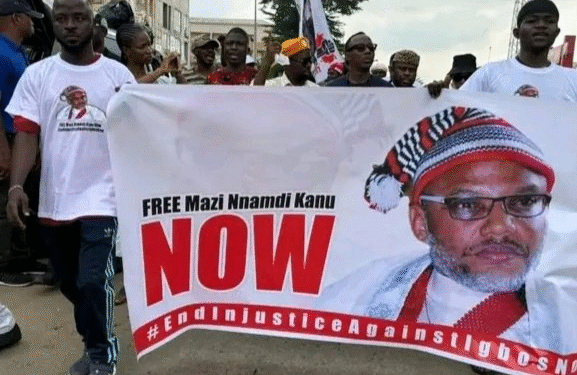Normalcy has returned to Abuja, Nigeria’s capital, following Monday’s disruption caused by supporters of the detained leader of the Indigenous People of Biafra (IPOB), Nnamdi Kanu.
On Monday, movement across the city centre was halted as security operatives barricaded major roads to prevent protesters from marching towards key government buildings. The demonstration, led by activist Omoyele Sowore, caused gridlock and forced many residents to stay indoors during the early hours of the day.
However, 24 hours later, business and social activities have fully resumed. A Channels Television team that visited parts of the city on Tuesday confirmed that commercial areas were bustling again, with the heavy security presence that dominated the streets the previous day now withdrawn.
The protesters, chanting slogans such as “Free Nnamdi Kanu now,” and “It’s our constitutional right to protest,” had vowed to continue their demonstrations until the IPOB leader is released from detention. Kanu has been in custody since 2021 following his arrest in Kenya and subsequent extradition to Nigeria.
Police operatives had arrived early at the protest sites, firing tear gas to disperse demonstrators and onlookers. Key locations such as Transcorp Hilton, Eagle Square, Unity Fountain, and the Three Arms Zone were heavily guarded, with access roads to the Federal Secretariat also blocked.
Security agents also sealed off Unity Fountain, the main convergence point for the protest, preventing both motorists and pedestrians from gaining entry.
At the Nigeria Union of Journalists (NUJ) secretariat in the Utako area, a combined team of soldiers and police officers fired tear gas at a nearby crowd, causing panic and forcing people to disperse, even though they were not part of the protest.
By Tuesday morning, the barricades had been removed, and the city had returned to its usual calm, with vehicular and pedestrian movement restored across all major routes.









